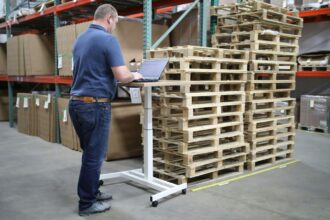You’ve managed to fulfill this long-standing part of the American dream — becoming a homeowner. It’s a great feeling. Now, you’re wondering where to go from here. After all, you want to protect your investment, prepare for the unexpected, and look to the future. With so much to think about, it helps to have an organized list of the financial moves you should be making as a responsible homeowner.
1. Get Covered
Of course, one of the most important, and first, steps to take as a homeowner is to ensure you’re covered. While the majority of lenders will require you to have homeowner’s insurance, so they can protect their investment as well, you get to choose what and how much coverage you have. Insufficient coverage, or even just the wrong kind, in the event of a disaster can leave you in debt up to your ears. You might not lose your house, but you might wish you had.
Take action now to get all the coverage you need. Shop around to get a home insurance quote that applies to your region and your specific property needs. And while you’re in the market for insurance, look into getting life, health, and even accident insurance. Many people cover their homes, but not themselves. These types of insurance will ensure that if anything happens to you, your mortgage can still get paid and you and your family won’t drown in debt paying it.
2. Get Backup
One of the nicest things about renting is that you can call your landlord to fix any issue in your home, large or small. A leaky toilet is not your problem — it’s the property manager’s. The flip side of that happy circumstance is that once you become a homeowner, it now is your problem — all of it. And those problems can get costly and add up quickly. A leaky toilet can mean a sewage issue that involves tens of thousands of dollars in expenses.
While homeowner’s insurance will cover some damage, it won’t cover it all, so you’ll need to have a backup plan in the form of savings. In general, experts advise homeowners to have 3-6 months of expenses put away in case trouble arrives at your doorstep, literally. That way, even if your insurance does cover the repairs for any damage, you’ll be able to get them taken care of quickly and then get reimbursed later. It’s always good to have a backup plan.
3. Monitor Interest Rates
You’ve likely heard the talk in the last few years about how many people who thought they were buying a starter home now realize they’re in their forever home. This shift in reality is all thanks to mortgage interest rates. About a decade ago, people were borrowing money to buy a home at a 1% interest rate. The current mortgage rate hovers around 7.5% for a 30-year fixed loan. That’s hundreds of dollars more per month on a mortgage payment, if not thousands.
Thus, it’s a good idea financially to keep an eye on interest rates as a homeowner. If you bought while interest rates were high, you’ll want to know if and when they begin to go down again, so you can refinance your home and save thousands of dollars over the life of your loan. This means you also want to keep your credit score in good shape as the better your credit rating, the lower your interest rate will be.
4. See Home Improvements as Investments
Most people who buy a home, even their ideal dream home, sooner or later start thinking of repairs and upgrades. You want a bigger bathroom, a better kitchen, double-paned windows, or a guest room in the garage. There’s always something to be done on a property, and you can either see that as a blessing or a curse. When you think about your home as an investment, however, repairs and upgrades can almost always be a blessing.
In many cases, repairs and upgrades to your property will increase the value of your home, which means your investment will be worth more. Ensure your renovations are not only what you want, but also what the market demands, and you can get the best of both worlds. For example, a kitchen renovation can offer up to 75% return on your investment, and new floors are an even better investment. Many renovations are money well spent.
5. Consider an ADU
Speaking of spending your money well, one smart financial move more homeowners are making these days is to add a dwelling to their property. An ADU, or accessory dwelling unit, is a tiny home added to a property that you can rent out either long-term or as an Airbnb. With high interest rates, and by extension high mortgage payments, adding a dwelling to your property can be just the investment you need.
In most cases, adding an ADU to your property will increase your property value and your resale value. You could use it to generate income or even just to have a guest house or office on your land. Make sure your city’s zoning laws allow for an ADU, and you might even be able to get a grant from your state to build the structure. You can find tons of cute design ideas on the internet for adding a “granny flat” for under $100k — a worthy investment indeed.
You’ve made a smart investment by becoming a homeowner, but you don’t have to stop there. In fact, this is just the beginning. There are many wise financial decisions you can make that will continue to pay off for you in the future, and also that will protect your future. As a bonus, you’ll have an increasingly lovely house to live in, and you can feel good about your growing money management skills.















